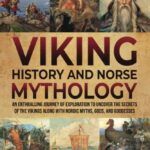Postcolonialism, as an intellectual movement, has significantly shaped our understanding of the world and its history. It is an interdisciplinary field that encompasses literature, history, sociology, and more, offering critical perspectives on the legacies of colonialism and the struggles for self-determination.
The Origins of Postcolonialism
Postcolonialism emerged in the mid-20th century as former colonies gained independence from European powers. Intellectuals and scholars from these regions began to question and challenge the narratives and structures imposed by colonial powers. They sought to reclaim their history, culture, and identity, while also critiquing the impacts of colonialism on their societies.
Key Intellectual Figures
Several key figures have played pivotal roles in shaping the discourse of postcolonialism. Edward Said, a Palestinian-American scholar, is renowned for his work “Orientalism,” which examined the ways in which the West constructed an orientalist view of the East. His analysis highlighted the power dynamics and ideological biases inherent in colonial representations.
Frigyes Karinthy, in his work “Metropole,” critically addressed the experiences of individuals living in colonial settings and the challenges they faced in navigating cultural and linguistic differences. His writings contributed to the understanding of the complexities of colonial encounters.
Another influential figure is Gayatri Chakravorty Spivak, whose essay “Can the Subaltern Speak?” raised critical questions about the representation and agency of marginalized groups within postcolonial contexts. Her work highlighted the need to amplify the voices of those historically silenced by colonial power structures.

Credit: onlinelibrary.wiley.com
Key Concepts and Themes
Postcolonialism is characterized by several key concepts and themes that have shaped its intellectual history. Colonial discourse analysis, for example, focuses on deconstructing the narratives and ideologies perpetuated by colonial powers. This critical approach seeks to unveil the power dynamics and knowledge production processes embedded in colonial representations.
Identity and hybridity are also central to postcolonial thought. The complexities of identity formation in postcolonial societies, as well as the mixing of cultures and traditions, have been subject to extensive analysis within the field. Scholars have examined the ways in which colonial encounters have shaped and transformed identities and cultural practices.
Moreover, postcolonialism addresses issues of power, resistance, and liberation. It scrutinizes the dynamics of power within colonial contexts and explores the strategies of resistance employed by colonized peoples. The pursuit of liberation and decolonization remains a fundamental concern within postcolonial discourses.
Impacts and Contributions
The intellectual history of postcolonialism has had profound impacts on various fields of study and has contributed to broader social and political movements. In the realm of literature, postcolonial perspectives have reshaped the canon, highlighting previously marginalized voices and narratives. Writers from postcolonial societies have gained increased visibility and recognition.
Furthermore, postcolonialism has influenced critical theories of race, gender, and globalization. It has provided frameworks for analyzing the intersections of power and privilege, contributing to ongoing discussions on social justice and equity. In political arenas, postcolonial insights have informed efforts towards decolonization and the recognition of indigenous rights.

Credit: www.amazon.com
Challenges and Future Directions
While the intellectual history of postcolonialism has made significant strides, it also faces challenges and criticisms. Some scholars have raised concerns about essentializing diverse postcolonial experiences and overlooking internal power dynamics within postcolonial societies. Furthermore, questions regarding the applicability of postcolonial theories in non-Western contexts continue to provoke debate.
Looking ahead, the future of postcolonialism lies in engaging with contemporary global issues, such as neocolonialism, environmental justice, and the impacts of globalization. The field continues to evolve, welcoming new voices and perspectives that contribute to its ongoing intellectual growth and relevance.
Frequently Asked Questions Of Intellectual History Of Postcolonialism: Tracing The Transformation Of Power
Q: What Is The Concept Of Postcolonialism?
Postcolonialism refers to the study of the historical, cultural, and social impacts of colonization within various societies.
Q: What Are The Key Ideas Of Postcolonialism?
Key ideas of postcolonialism include analyzing power structures, confronting dominant narratives, and emphasizing cultural diversity and equality.
Q: How Does Postcolonialism Relate To Intellectual History?
Postcolonialism informs our understanding of intellectual history by uncovering previously disregarded voices and challenging traditional Western frameworks.
Q: Why Is The Intellectual History Of Postcolonialism Important?
Studying the intellectual history of postcolonialism helps us grasp the complexities of colonial legacies and fosters a more inclusive understanding of global cultures.
Conclusion
In conclusion, the intellectual history of postcolonialism represents a critical engagement with the legacies of colonialism and the pursuit of social justice and liberation. Through the work of influential figures, the exploration of key concepts and themes, and its wide-ranging impacts, postcolonialism remains a vibrant and dynamic field that continues to shape our understanding of the world and its histories.
Guest Author Sakhawat-Shuvo wrote and edited this Article based on his best knowledge and understanding. These opinions and remarks are not endorsed or guaranteed by epichistoria.com or EpicHistoria. The Epic Historia does not guarantee this article’s content. Readers should verify and use their judgment before trusting the content. Also, the Images used in this Article are the copyright of their Respective Owners. Please use our Comment Box or Contact Us form to report this content. This information is not accountable for losses, injuries, or damages.
